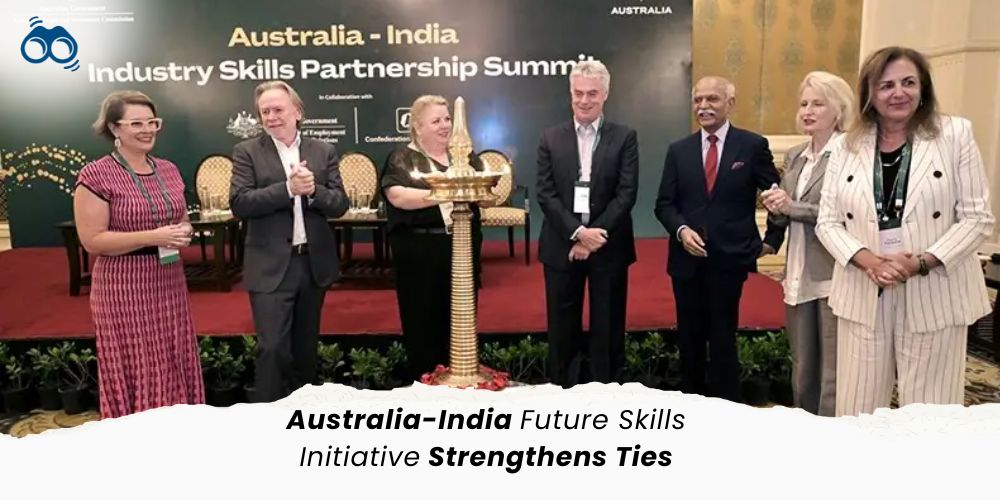Deakin and Wollongong Lead the Way with New Campuses in GIFT City, Western Sydney University Follows in Noida
Australia's Commitment to Long-Term Academic Networks and Reputation in India
Australian universities are significantly increasing their presence in India through innovative Transnational Education (TNE) models, including dual degrees, education hubs, and joint academies, aimed at strengthening their academic networks and enhancing their long-term reputation in the region.
In this context, Monica Kennedy, Head of South Asia at Austrade, emphasized key education and research initiatives between Australia and India at The PIE Live India 2025. She noted that, while establishing branch campuses remains a priority, Australia is also focused on strengthening its ties with the Indian government through innovative Transnational Education (TNE) models. These include initiatives like dual degrees, education hubs, and joint academies, aimed at fostering long-term academic networks and enhancing Australia's reputation in India.
Since India relaxed central regulations on international branch campuses, several Australian universities have established or are in the process of setting up branches in the country. Deakin University became the first to establish a teaching campus, followed by the University of Wollongong. Unlike Deakin and Wollongong, which set up campuses in GIFT City’s central business district, Western Sydney University plans to establish a base in Noida, likely under the University Grants Commission's regulations for foreign higher educational institutions.
Kennedy highlighted the University of Melbourne's launch of a global centre in Delhi to promote educational programs, advanced research, and community engagement in India. Despite having only 43 universities, Australia boasts that 90% are globally ranked, with three in the top 20 and nine in the top 100. She emphasized Australia's trusted partnership with India and Australia’s commitment to strengthening these ties. Kennedy also mentioned the Australia-India Future Skills Initiative (FSI), supported by $5.8 million in funding, as a key example of their collaborative research efforts.
Australia is committed to sustainable development goals, noting impactful partnerships in food security, renewable energy, and sustainable cities. Moreover, Australia-India FSI's role in key collaborations, including the Women’s Entrepreneurship Research Alliance between Deakin and Symbiosis University, and a new finance program between Macquarie Business School and the National Stock Exchange Academy. Additionally, Australian tech company Q-Ctrl has partnered with the Tamil Nadu government to support quantum skilling for engineering professionals. In closing, Kennedy stated that these initiatives demonstrate Australia’s position as a close partner and friend to India. She emphasized that despite the geographical distance, both countries share aligned ambitions, and their strengths complement each other. These collaborative efforts reflect Australia's commitment to fostering strong and mutually beneficial educational partnerships with India.
Editor's Note:
As the world of education continues to change, Australian universities are making significant progress in building strong academic connections with India. Through Transnational Education (TNE) models like dual degrees, education hubs, and joint academies, Australia is taking a forward-thinking approach to education that aims to benefit both countries. This goes beyond just setting up branch campuses; it’s about bringing Australian educational values and standards into India, enriching both nations in the process. The University of Melbourne’s global centre in Delhi, along with Deakin and Wollongong’s campuses in GIFT City, and Western Sydney University’s upcoming base in Noida, all reflect a shared vision of academic excellence. The Australia-India Future Skills Initiative (FSI) is a great example of how education can solve real-world issues and support economic growth. Australia’s involvement in India’s education system is more than just a strategy—it is a true commitment to mutual growth and shared success.
Skoobuzz is excited about the future and the potential for Australia and India to continue working together to create new opportunities in education and beyond.














0 Comments (Please Login To Continue)